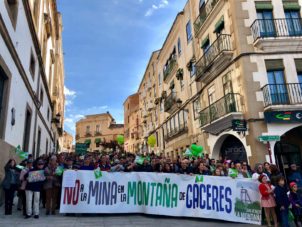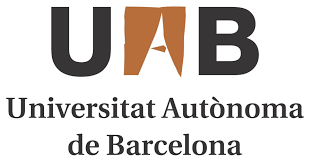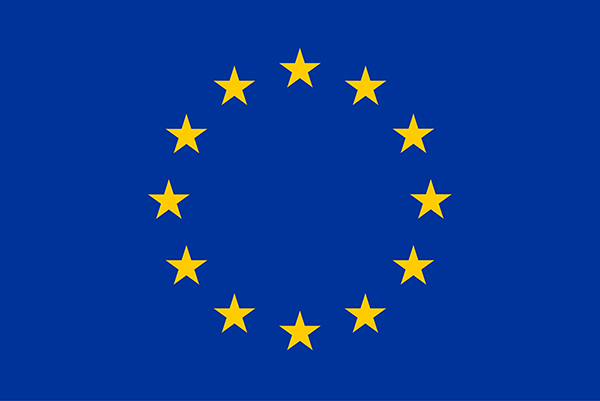
By Joan Martinez Alier.
To promote mining, European official rhetoric uses phrases such as “A Social License to Operate (SLO) is crucial for the industry; this concept could be widened towards a ‘Sustainable Development License to Operate’ (SDLO)”. “Transparency, traceability and certification (e.g. resource efficiency labels) in the materials supply chain are needed to move towards a truly circular and sustainable society.”
These phrases were at the core of the ill-fated MIREU project in Horizon 2020 which focused on Social Licence to Operate – where at the mining extraction frontiers of peripheral Europe something akin to “soft counterinsurgency methods” would be applied. This is Andrea Brock and Alexander Dunlap’s term, here referring to the attempt to discredit environmental organizations. This in comparison to the more robust methods of counter-insurgency applied at the world peripheries in South America, the Republic of the Congo, the Philippines, Mongolia…with violent repression and fear.
The European peripheries would be treated more kindly, as the 3 million € MIREU project describes: “The EU project MIREU aims to establish a network of mining and metallurgy regions across Europe. The main objective of the project is to identify ways to ensure the sustained and sustainable supply of mineral raw materials to the EU and to promote investment, innovation and growth in the sector. As mining projects are carried out at regional and local levels, regions are key actors in ensuring a continued supply of mineral raw materials to the European economy. The MIREU project will bring together mining and metallurgy regions from across Europe to work together on improving the conditions for sustainable access and supply of raw materials in the EU. The regions will share their experiences and knowledge to help tackle the fundamental challenges of establishing and maintaining an extractive industry.”
One crucial instrument would be the SLO, and MIREU would train companies and regional governments on how to get an SLO. The MIREU website says: “Watch MIREU’s European SLO video! The MIREU project is producing European SLO guidelines. Watch this video to find out why they are needed.” MIREU would investigate in detail the resistance at the community level.
SLO is a term much used in the business literature in the extractive industries but not yet so much in the policy. In the EJAtlas we also write about mining conflicts and our inventory of conflicts is relevant for business management. Business managers and sometimes journalists use derogatory terms like “NIMBY” (not in my backyard) to describe opposition to mining projects, while environmental justice organisations use “NIABY”, (not in anyone’s backyard). Different interests and values, different terms. Whose term is SLO? What is its origin? Should it acquire a prominent position in European policy? Does the EU need SLO guidelines?
As Rajiv Maher writes in the Business and Human Rights Journal (2020) we in the EJAtlas document and catalogues social conflicts around environmental issues (3,250 so far, in August 2020) aiming to make these instances of mobilization more visible, highlighting claims and testimonies, making the case for corporate and state accountability for the injustices inflicted sometimes through their activities. The materials collected and the research done with the EJAtlas are relevant, therefore, to the construction and criticism of indices and benchmarks meant to inform and guide shareholders and other stakeholders, such as the Responsible Mining Index (RMI), the Business Human Rights Benchmark and others. High-ranking companies in the Corporate Human Rights Benchmark (CHRB) and RMI are demonstrably involved in the EJAtlas in multiple socio-environmental community conflicts, perhaps even protagonists of Global Witness’ narratives of deaths of environmental defenders.
Similarly, there is much information in the EJAtlas on “social licence to operate” (SLO), a term much used in the extractive industries (Prno, Slocombe, 2012; Gehman et. al., 2017) meaning communities’ approval or acceptance of ongoing projects. Harmonious “company towns” end up after 30 or 40 years of mining as mountains of bleak environmental liabilities when the mineral runs off while “acceptance” may not always be willingly granted social permission; it can be obtained by violence and fear and not only by bribery and persuasion. Therefore, the use of the EJAtlas in professional advisory financial activities and in fields like eco-labelling, product certification and in general CSR (or Environmental Social Governance, ESG as it is nowadays called) opens up opportunities for research in business management on the opposition between the objectives of “shareholder value” and “responsible management” (Laasch et. al., 2020). Corporate Social Irresponsibility (CSIR) (Riera and Iborra, 2017, Alcadipani and Medeiros, 2019), corporate accountability, corporate impunity and lack of liability are topics of interest that MIREU could have studied. How do corporations (and state organs) react to allegations of using “counter-insurgency methods” against environmental defenders? Corporations are supposed to practice disclosure of environmental, social and governance (ESG) results.
So, in EnvJustice we are aware of the implications of our work for research in business management. We have in the EJAtlas some recent cases of mining conflicts in Europe, for instance in Caceres, Spain.
We have felt quite distant from MIREU, whose purpose was to map all such recent European mining conflicts and explain how SLO could be obtained. One of the methods was clearly the discrediting of the opponents as ignorant, if not worse. SLO requires disabling resistance and creating divisions. There has now been a strong collective reaction of the communities and organizations involved in MIREU, a project not subject to academic discipline, it does not produce reports, articles and books subject to peer-review but it is “policy-oriented”, it aims to write EU sponsored “SLO guidelines” for mining companies. MIREU has gotten into a mess by its attitudes to the many small local communities and organizations that oppose mining at the periphery of Europe. Complaints were made public on 24th August 2020. One important voice against MIREU has been Ecologistas en Acción in Spain.
Sources:
See also the new Iberian platform against mining (in Spanish):
https://nominaspeninsulaiberica.eu/#





Many thanks Joan for your thoughts on MIREU. It is comforting that our efforts in Ecologistas en Accion do not go unnotice.